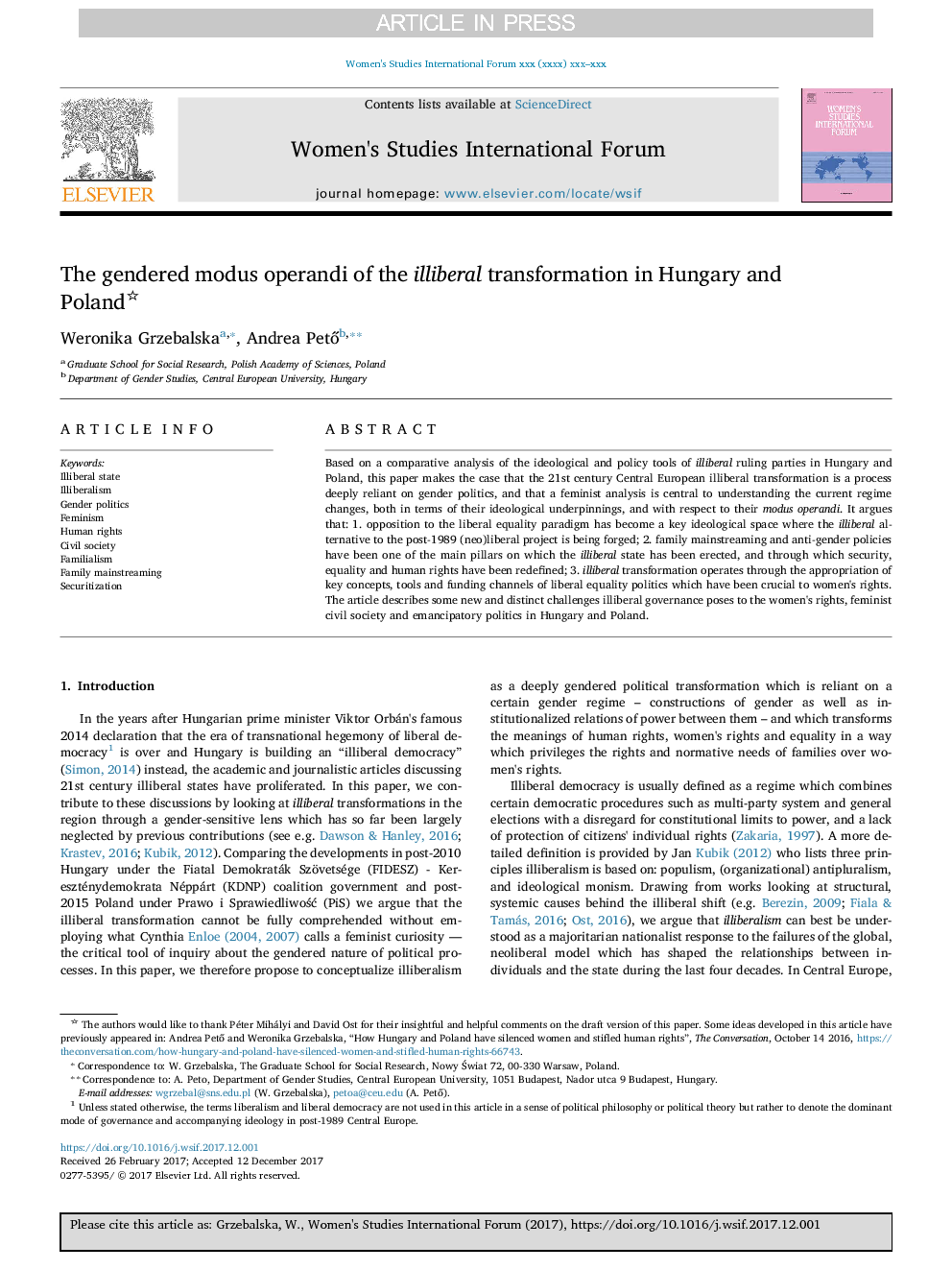ترجمه فارسی عنوان مقاله
جنبشهای مدون تحول نابرابر در مجارستان و لهستان
عنوان انگلیسی
The gendered modus operandi of the illiberal transformation in Hungary and Poland
| کد مقاله | سال انتشار | تعداد صفحات مقاله انگلیسی |
|---|---|---|
| 130166 | 2018 | 9 صفحه PDF |
منبع

Publisher : Elsevier - Science Direct (الزویر - ساینس دایرکت)
Journal : Women's Studies International Forum, Available online 13 February 2018
ترجمه کلمات کلیدی
دولت ایلبریال، ستیزه جویی، سیاست جنسیتی، فمینیسم، حقوق بشر، جامعه مدنی، فامیلیسم، جریان اصلی خانواده، اوراق قرضه،
کلمات کلیدی انگلیسی
Illiberal state; Illiberalism; Gender politics; Feminism; Human rights; Civil society; Familialism; Family mainstreaming; Securitization;
ترجمه چکیده
بر اساس تجزیه و تحلیل تطبیقی ابزارهای ایدئولوژیک و سیاستی احزاب حاکم غیر قانونی در مجارستان و لهستان، این مقاله نشان می دهد که تحولات غیرقانونی در اروپای مرکزی اروپا، فرایندی است که عمیقا متکی بر سیاست های جنسیتی است و تحلیل های فمینیستی، درک تغییرات رژیم در حوزه ایدئولوژیک آنها و با توجه به نحوه عملکرد آنها. این استدلال می کند که: 1. مخالفت با پارادایم برابری لیبرال، تبدیل به یک فضای کلیدی ایدئولوژیک شده است که در آن جایگزین غیرقانونی برای پروژۀ لیبرالی پس از سال 1989 شکل گرفته است؛ 2. جریان اصلی جندر و سیاست های ضد جنسیت، یکی از اصلی ترین ستون هایی است که در آن دولت غیر دولتی ساخته شده است و از طریق آن امنیت، برابری و حقوق بشر تعریف شده است؛ 3. تحول غیرقانونی از طریق تخصیص مفاهیم کلیدی، ابزارها و کانال های تامین مالی سیاست های برابری لیبرال که برای حقوق زنان حیاتی است، عمل می کند. در این مقاله، برخی از چالش های جدید و متمایز چالش های جدید و متمایز را بیان می کند که حکومت های غیراخلاقی به حقوق زنان، جامعه مدنی فمینیست و سیاست های رهایی بخش در مجارستان و لهستان می پردازد.

